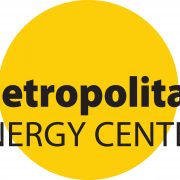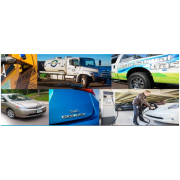Metropolitan Energy Center and Grain Valley School District, in conjuction with the national nonprofit Propane Education & Research Council, hosted the “Autogas Answers for Schools Workshop” Friday at the Courtyard Marriott Kansas City East/Blue Springs. The workshop explained the advantages of running school bus fleets on propane autogas and showed Grain Valley’s propane-powered school bus fleet in action.
“When schools choose to incorporate propane into their bus fleets, the whole community benefits,” said Kelly Gilbert, executive director of Metropolitan Energy Center and coordinator of Kansas City Regional Clean Cities. “This event was a fantastic opportunity for Kansas City school transportation officials to see how propane autogas buses are already working for the local Grain Valley School District. We hope everyone who attended left feeling empowered to make the best decision for their fleet, their students and their community.”
During the event, the Grain Valley School District provided a tour of their scalable propane autogas refueling infrastructure. As of January 2019, nearly 30 percent of Grain Valley’s fleet is powered by propane autogas. The Grain Valley Director of Transportation, Shawn Brady, plans to add seven more propane-powered buses by the end of the year.
Propane professionals expanded upon Grain Valley’s testimonial by explaining how propane-powered school buses can reduce a fleet’s emissions and offer the lowest total cost-of-ownership of any fuel, in part because of lower fuel and maintenance costs. Attendees also learned about clean transportation funding opportunities and networked with clean fuel industry professionals.
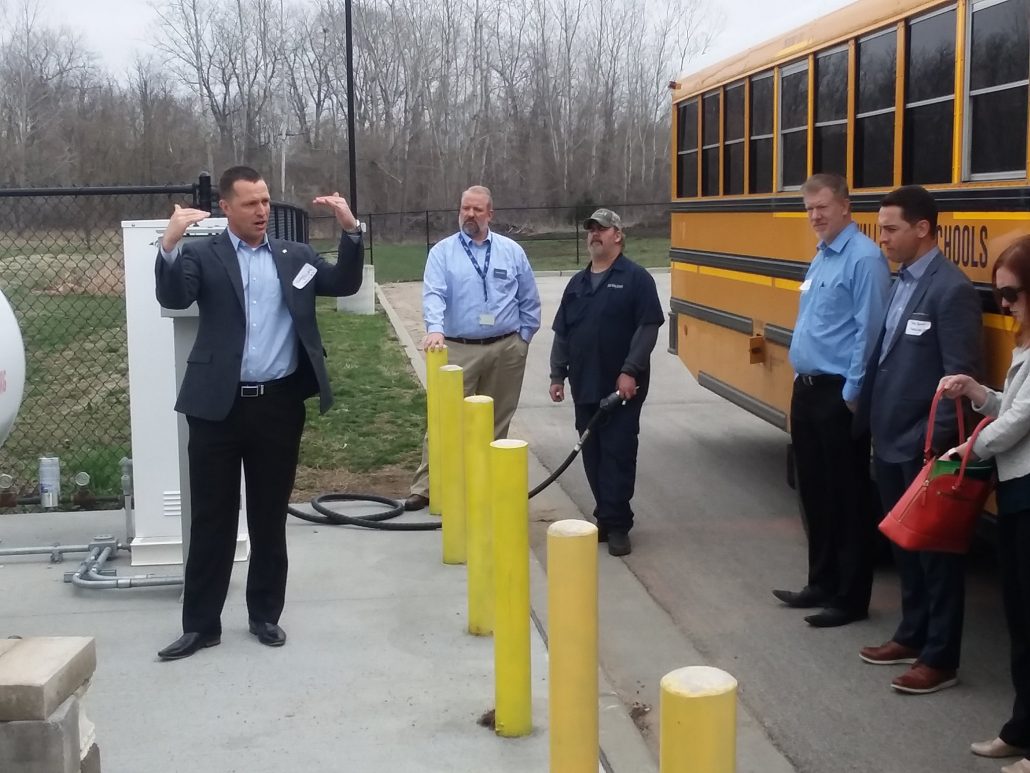
Nathan Ediger of Ferrelgas discusses propane infrastructure at Grain Valley SD.
The Autogas Answers for Schools Workshop was put on by Grain Valley School District, Metropolitan Energy Center, Kansas City Regional Clean Cities, Propane Education & Research Council, Missouri Propane Gas Association, the Kansas City Area Association of Pupil Transportation, and Ferrellgas. For more information about Metropolitan Energy Center, visit metroenergy.org.
About Metropolitan Energy Center: Metropolitan Energy Center is a non-profit and a catalyst for energy efficiency, economic development and environmental vitality in America’s Heartland. It is host of Kansas City Regional Clean Cities, a designated U.S. Department of Energy program, and Central Kansas Clean Cities. Learn more about us and our programs at metroenergy.org.
About PERC: The Propane Education & Research Council is a nonprofit that provides leading propane safety and training programs and invests in research and development of new propane-powered technologies. PERC is operated and funded by the propane industry. For more information, visit propane.com.
For fiscal year 2019 (July 2018 through June 2019), the Missouri Department of Natural Resources will fund $2.75 million in government truck repower and replacement projects.
Implementation Guidelines
Deadline: Monday Dec. 31, 2018 at 5 p.m. CST.
Eligibility: Qualifying applicants include government agencies that own eligible trucks: “Government” shall mean a State or local government agency. This category includes a school district, municipality, city, county, special district, transit district, joint powers authority, or port authority, owning fleets purchased with government funds. It also includes a tribal government or native village. The term “State” means the several States, the District of Columbia, and the Commonwealth of Puerto Rico.
Key Program Requirements:
- Eligible engine model years 1992-2009.
- Eligible vehicles are Class 4-8 with GVWR greater than 14,000 pounds.
- Older engine or vehicle must be permanently disabled.
- New diesel, biodiesel, CNG, propane and all-electric engines are all eligible for funding.
- The program provides up to 75% of the cost of an engine repower.
- The program provides up to 50% of the cost of a new vehicle.
- For this round, maximum request from a single applicant is $1 million.
- Applications submitted through modnr.force.com.
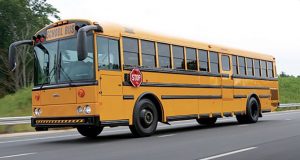
The State of Missouri is requesting applications from schools and school fleet operators to replace old diesel buses. This funding opportunity is open to public and private schools and school districts and for-profit operators of school bus fleets, providing up to $22,000 for each vehicle replaced. The Missouri Department of Natural Resources, which administers the program, anticipates 70-75 bus replacements statewide through this one-year cycle.
The deadline for districts and school transportation providers to apply is Friday, September 14th.
Applicants may apply for funding for up to 3 buses if replacing diesel with diesel; however, they can apply for funding for up to 10 buses if replacing diesel vehicles with propane, compressed natural gas (CNG), all-electric buses, or other clean-fuel alternatives. Shuttle buses, paratransit or any school vehicles not powered by diesel are not eligible.
This funding cannot be used to expand a fleet, and only buses powered by engine model years 1995 – 2006 are eligible. Replacement buses cannot exceed 125% of the original buses’ GVWR, and a minimum GVWR of 14,000 pounds is required. Applicants must be able to fund the entire program up front, since it is based on reimbursement from Missouri DNR. Federal funds cannot be used to provide the required 75% match for this program, nor can other funding from the VW Trust.
There are other details and restrictions that apply to this program – please read all information carefully before applying! Request For Applications For Early Replacements Of School Buses contains detailed information on program requirements and timelines. For guidelines and a link to updates on opportunities for other vehicle categories, including heavy trucks, cargo moving and electric vehicle charging systems, we recommend Volkswagen Trust – Apply For Funding. For specific questions about program requirements, please contact Mark Leath at the Department of Natural Resources, and as point of contact for application submission.
Wed, May 23 | 2:30 pm | Project Living Proof | 917 Emmanuel Cleaver II Blvd, KCMO
Kansas City Regional Clean Cities is hosting a grant workshop on three new funding opportunities totaling more than $140 million nationwide. These programs cover diesel emissions reduction, low- and zero-emission transit fleets, and infrastructure and super-fast charging, plus other projects. We’ll cover eligibility, the application process, financial and cost-share requirements, and much more in this free workshop.
All interested potential grant applicants are cordially invited to participate. This includes state and local governments, transit agencies, MPOs, non-profit organizations and school districts. Although for-profit companies are not eligible to apply directly for these grants, Clean Cities routinely works with our corporate fleet members to administer grants for their projects. Interested businesses are welcome to attend.
Join us in person at Project Living Proof, or attend virtually via GoToMeeting or telephone at (646)749-3122, Access Code: 448-679-701. If attending in person, please park at the Anita Gorman Discovery Center, 4750 Troost Avenue, Kansas City, MO, then follow the boardwalk north to PLP’s back door.
For questions or to RSVP for the workshop, email David Albrecht or call (816) 531-7283.
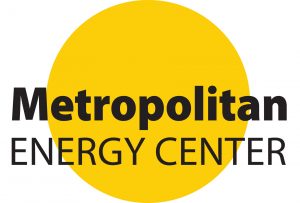
The Missouri EV Collaborative held its second spring meeting on April 17th at City Hall in Columbia, MO. There was plenty of discussion among municipal fleet and Clean Cities representatives from Missouri, Nebraska, Iowa and Illinois. The VW Settlement, clean fuel corridors and the nuts and bolts of EV charging were all hot topics.
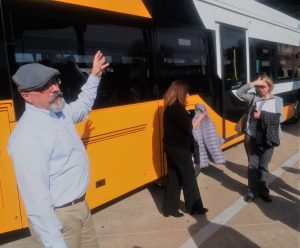
Above – Transit Manager Drew Brooks Lays Out The Layout Of An EV Bus
The really fun part, though, came at the end of the day, when attendees headed out for a test ride on one of nine all-electric transit buses run by the city’s transit authority. GoCOMO now operates nine battery-powered buses, with four more ordered. The bus, California-built but designed by China’s BYD, provided a remarkably quiet ride around town as Parking & Transit Manager Drew Brooks talked about tech, testing and transitioning to EV bus service.
The City runs the buses under a lease-to-own agreement as part of GoCOMO’s budget. Along with local funding, a $1.7 million grant from the Federal Transit Administration is helping to cover the cost of electrical upgrades, consulting and three of the four EV buses still on order. The cost difference between all-electric buses and conventional models is still substantial, though EV prices are falling. This means that ROI in through fuel savings is very much a long-term proposition. However, there’s one area where the electric buses paid for themselves immediately – maintenance. Normal quarterly maintenance for a diesel bus runs in the neighborhood of $1,300. But an EV bus, without fuel or oil; in fact, lacking nearly all of the moving, greasy parts found in a diesel bus – runs about $300 per maintenance check.
According to Brooks, BYD’s support team engaged well before a single wheel turned in mid-Missouri. Along with background information on local weather and passenger counts, route mapping was vital to the rollout. This included special attention to the maximum grades on each route. This information was then programmed into the computer on each bus before delivery to cut the odds of running out of juice. Although different drivers can and do make a difference with how many miles a given bus can run between charges, range hasn’t really been a serious issue.
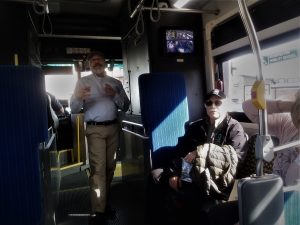
Above – Drew takes questions on the road; on right, KCMO Sustainability Coordinator Gerry Shechter.
One notable physical difference during our drive around town – the lack of noise, something that’s made the EV buses popular among riders. Drew stood up front, taking questions in a voice just slightly louder than normal conversational tone, something that would be impossible in a diesel bus. There may have been 75 horses tied to each rear axle, but you couldn’t really tell from the passenger seat.
TIME CHANGE. To bring you all the latest developments, we are starting at 9:00 a.m.
Clean, alternative fuels are the future of school district transportation. Propane, natural gas and electric vehicle options are becoming mainstream, and Kansas City districts are already committing to these alternatives to diesel buses. Alternative fuels give school districts a new approach to long-term substantial fuel savings, while protecting students from the risks of diesel emissions.
What: 2017 School Fleet Alternative Fuels Summit
When: Wednesday, November 15, 2017, 9:00 am to 2:00 pm
Where: Blue Springs School District’s Bartow Administrative Center, 1801 Northwest Vesper Street, Blue Springs, MO
Who: School district fleet managers, superintendents and district purchasing professionals.
Guest speakers will cover the latest in alt-fuel technology, reports from districts already using alternative fuels, information on financing alt fuel projects, and a tour of the Blue Springs District’s compressed natural gas fueling and fleet facilities. Lunch is included as part of the program. See full tentative agenda.
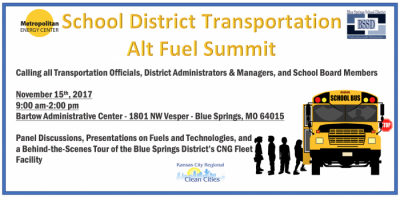
Contact David Albrecht at MEC with any questions.
About Us
Metropolitan Energy Center (MEC) is a 501(c)(3) nonprofit organization. Our mission is to create resource efficiency, environmental health, and economic vitality in the Kansas City region – and beyond. Learn more about us and our programs.

